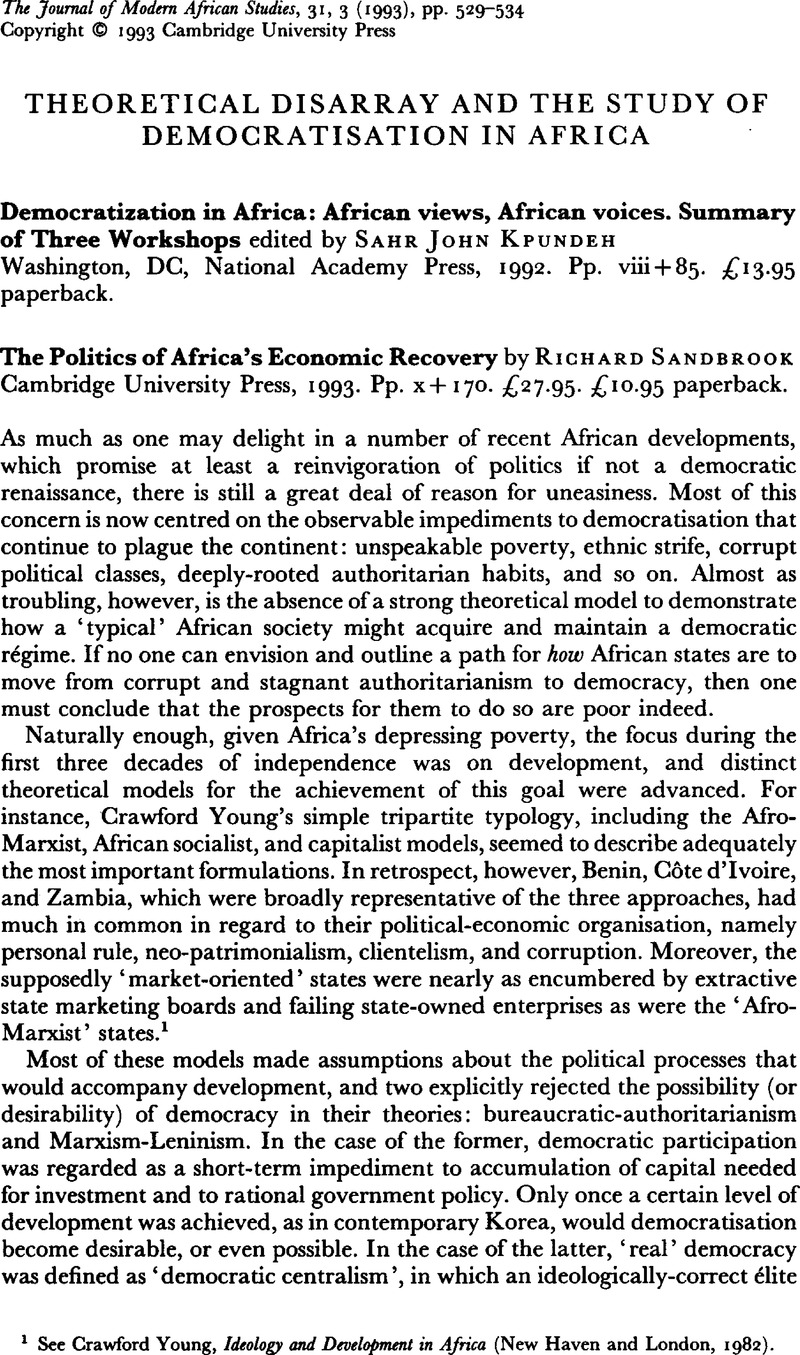Article contents
Theoretical Disarray and the Study of Democratisation in Africa - Democratization in Africa: African views, African voices. Summary of Three Workshops edited by Sahr John Kpundeh Washington, DC, National Academy Press, 1992. Pp. viii + 85. £13.95 paperback. - The Politics of Africa's Economic Recovery by Richard Sandbrook Cambridge University Press, 1993. Pp. x + 170. £27.95. £10.95 paperback.
Published online by Cambridge University Press: 11 November 2008
Abstract

- Type
- Reviews
- Information
- Copyright
- Copyright © Cambridge University Press 1993
References
1 See Young, Crawford, Ideology and Development in Africa (New Haven and London, 1982).Google Scholar
2 Cf. Simiuy, Vincent G., ‘The Democratic Myth in the African Traditional Societies’, in Oyugi, Walter O. et al. (eds.), Democratic Theory and Practice in Africa (London and Portsmouth, NH, 1988), pp. 49–70.Google Scholar
3 On the need for donor priorities, see Herbst, Jeffrey, U.S. Economic Policy Toward Africa (New York, Council of Foreign Relations Press, 1992), pp. 20–5.Google Scholar
4 Bayart, Jean-François, The State in Africa: the politics of the belly (London, 1993), pp. 2–10.Google Scholar
5 See Sandbrook, Richard, The Politics of Basic Needs: assaulting urban poverty in Africa (London, 1982),Google Scholar and ‘Liberal Democracy in Africa: a socialist-revisionist perspective’, in Canadian Journal of African Studies (Toronto), 22, 3, 1988, pp. 240–67.Google Scholar
6 Consider, for example, the paths of the French (1789), Russian (1917), and Iranian (1979–80) revolutions. For a classic account of the problems encountered, see Brinton, Crane, The Anatomy of Revolution (New York, 1965 edn.),Google Scholar as well as Kober, Stanley, ‘Revolutions Gone Bad’, in Foreign Policy (Washington, DC), 91, Summer 1993, pp. 63–83.Google Scholar
- 2
- Cited by


